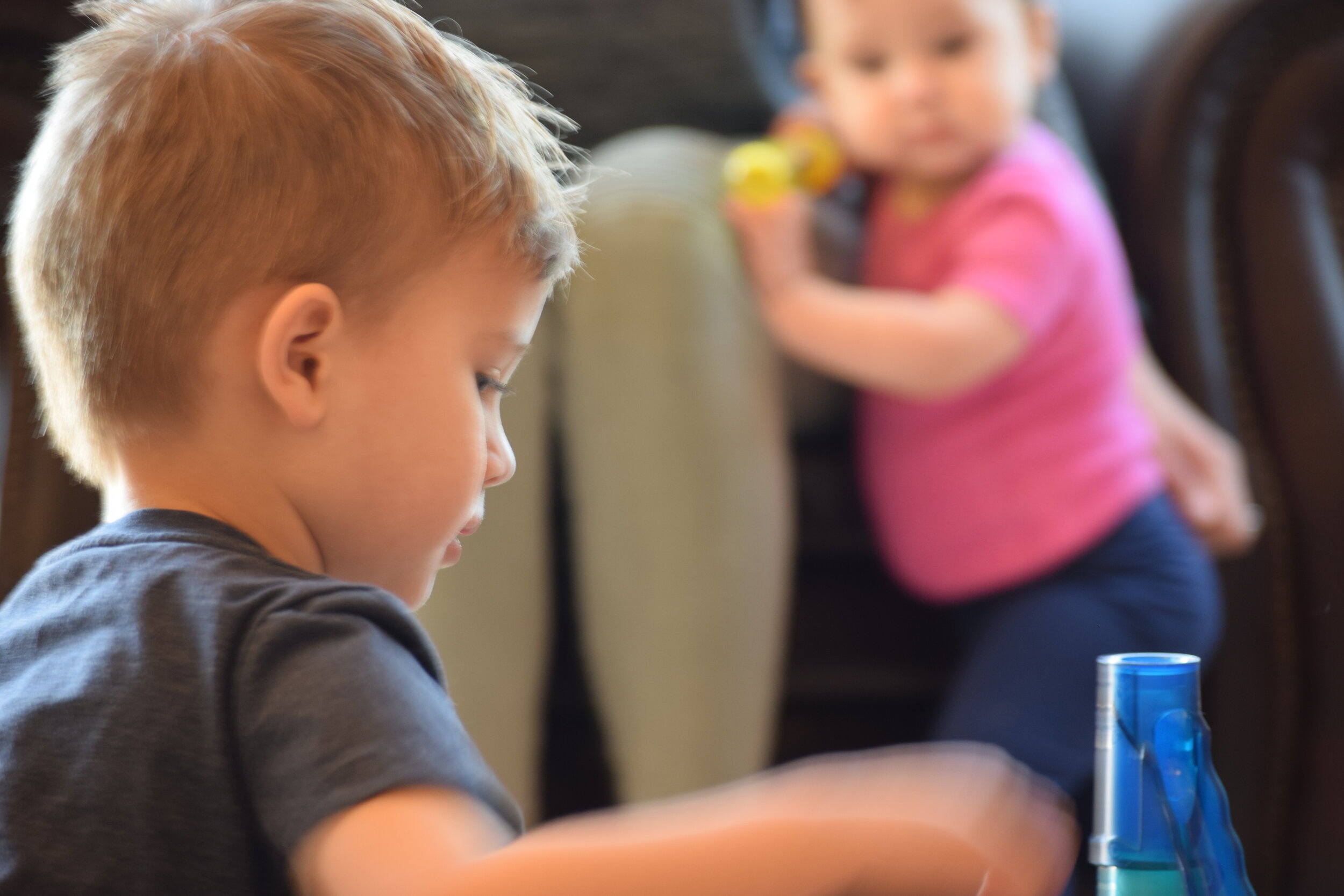Early intervention.
What should I do if my child isn’t talking?
Most children say their first word around the age of one, but communication and language development starts far before then. If your child doesn’t say any words by 15 months old, or if they don’t make sounds, babble, and imitate before then, you should seek an evaluation with a speech-language pathologist (SLP). Your speech-language pathologist should use techniques based on research to improve your child’s language skills. The most evidence-based strategy for young children who are late to talk is parent coaching. Research suggests that children whose parents receive training in communication and language strategies make more progress than children who receive just speech-language therapy without parent training. Download our free communication milestones to learn more about what skills your child should demonstrate at various ages. Ready to learn more?
What is early intervention?
You might have heard of the term “early intervention.” Early intervention refers to therapy provided before a child’s third birthday. Doctors and specialists used to tell parents to “wait and see” if their child improved without help. However, many years of research suggests that the earlier a child begins receiving therapy, the faster they catch up to their peers, and the less therapy they will need overall. Recently, researchers have found that toddlers with language delay are at higher risk for severe tantrums than children without language delay (Manning et al., 2019). Many times, parents will tell me that they knew there was a problem long before they finally took the plunge to contact a speech-language therapist. If you are concerned about your child’s communication development, don’t wait and see.
Services for children under the age of three are paid for under California Early Start through an agency called the San Diego Regional Center (SDRC). North Star is an approved vendor through the SDRC. Request North Star (vendor number PY2169) as your SDRC vendor. Read more about SDRC services.
Why choose North Star?
North Star’s founder, Dr. Katherine McKernan, holds a doctorate in speech-language pathology from Northwestern University. Dr. Katherine’s training in the application of clinical research and expertise in working with young children makes her specially equipped to support you to help your child improve their communication skills. By incorporating parents as active participants in speech-language therapy, your child will likely make faster progress than if they were to receive only traditional speech-language therapy.
Parent Coaching
Most of the time, children learn communication skills, like talking, from their parents. However, up to 8% of children have a hard time learning to communicate (NCHS Data Brief, 2015), much of the time with no known cause. In research studies, parent training and coaching has been positively associated with improvement in speech-language skills for young children. It is important for parents to learn skills to help their child, since young children spend the majority of their time with their parents. Read more about the research behind parent coaching.
Online Therapy
You are probably thinking I’m a crazy person for suggesting that your one-year-old can be successful with speech-language therapy online. But, with a parent coaching model, your child doesn’t need to listen to me during an online therapy session. Online therapy creates the perfect opportunity for you to get direct instruction in strategies to improve your child’s communication skills, for you to practice these strategies with your child, and then to self-reflect and get feedback on your use of the strategies. For very young children, online therapy is a great way to practice language skills in the comfort of your home without any added distractions. Read more about online therapy and see an example with a one-year-old.
Child-Led Therapy
Motivation makes a big impact on learning. Children learn best when they are having fun doing things that they enjoy. Anyone who has ever tried to tell a toddler what to do knows that toddlers do best when they are doing what they want. Child-led therapy focuses on following your child’s interests and using that as a starting point for teaching and learning. The starting point of therapy should not be teaching the signs for “want” and “more”, but should focus on language that motivates your child to communicate naturally. By taking the focus off telling your child what to do and what to say and focusing on strategies to improve your child’s skills naturally, child-led therapy maximizes your time and financial investment in your child’s therapy.
Self-paced parent training course for language development.
Not ready for individual speech-language therapy yet? Start by enrolling in Dr. Katherine’s self-paced online parent training course, Lighting the Way: Developing your toddler’s language skills at home. Lighting the Way covers developmental milestones, signs that you should seek additional support for your child’s communication skills, and strategies for to develop your child’s language skills during daily routines, play, and reading.







